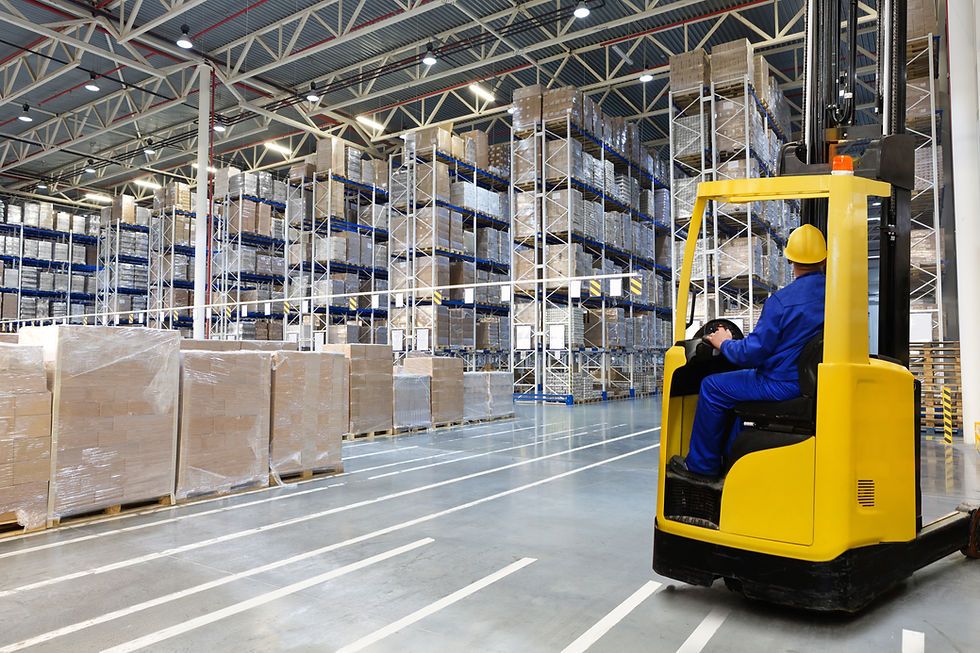Exploring the Impact of Tariff Wars on Global Economic Stability and Corporate Strategy
- May 7, 2025
- 4 min read
Tariff wars are challenging the very foundation of the global economy. As countries implement tariffs to protect their industries, the implications reach far beyond borders, affecting everything from consumer prices to corporate strategies. This blog post explores the intricacies of tariff wars, their effects on economic stability, and actionable steps businesses should take to navigate this turbulent landscape.
Understanding Tariff Wars
Tariff wars happen when countries impose tariffs on each other's goods as a form of economic retaliation. This back-and-forth can escalate rapidly, leading to price increases for both consumers and businesses. For example, when the U.S. imposed tariffs on $200 billion worth of Chinese goods in 2018, it resulted in prices for many everyday products climbing by 20% or more. While the intent behind tariffs is to protect local industries and jobs, they can also lead to negative outcomes, such as inflation and reduced consumer spending.
Historical Context
Tariff wars have a long history, especially in times of economic uncertainty. The Smoot-Hawley Tariff Act of 1930 is a classic example. By raising tariffs on 20,000 imports, the U.S. aimed to protect its economy during the Great Depression. Instead, it prompted retaliatory tariffs from other nations and a dramatic drop in global trade—by roughly 66%—worsening the economic downturn.
Today, the ongoing trade conflict between the U.S. and China mirrors this past. Both countries have enacted tariffs on billions of dollars’ worth of goods, creating uncertainty that can disrupt global trade.

Current Developments
U.S.-China Trade Talks: High-level discussions are set to take place in Switzerland, aiming to deescalate tensions between the U.S. and China. The U.S. has imposed 145% tariffs on Chinese imports, while China has responded with 125% tariffs on U.S. goods. Some exemptions have been made to ease tensions.
Tourism Impact: Fiji anticipates long-term negative effects on its tourism industry due to U.S. tariffs, which could reduce disposable income in key tourist markets.
Amazon's Business: The e-commerce giant faces challenges as tariffs increase costs for imported goods, potentially leading to higher consumer prices and lower sales.
Automotive Industry: Rivian, an EV manufacturer, has cut its delivery forecasts due to increased costs from tariffs. Other automakers like Ford and GM have also warned of financial strain.
Agriculture: U.S. farmers are struggling as tariffs limit exports, particularly for beef and grain products. Some lawmakers are calling for trade agreements to open new markets.
Broader Economic Effects
Global Trade Disruptions: Tariff wars can lead to reduced trade volumes, supply chain disruptions, and increased costs for businesses and consumers.
Inflation & Consumer Prices: Higher tariffs often result in increased prices for imported goods, contributing to inflation.
Economic Slowdowns: Countries heavily reliant on exports may experience slower economic growth due to reduced trade opportunities.
Shifts in Supply Chains: Companies may seek alternative suppliers or relocate production to avoid tariffs, leading to long-term changes in global trade patterns.
Economic Impacts of Tariff Wars
The consequences of tariff wars are complex and affect various aspects of the economy. Below are key areas of impact:
1. Increased Costs for Consumers
Tariffs lead to increased prices for both imported and domestic goods. A 2020 study revealed that U.S. tariffs caused prices at the retail level to rise by 2.8% for targeted products. This increase adds a financial burden on households, reducing disposable income and consumer spending, which, in turn, can impact overall economic growth.
2. Supply Chain Disruptions
Tariff wars interrupt the flow of goods across borders, forcing companies to reevaluate their supply chains. For instance, in 2021, many businesses reported delays of up to 30% in their supply lines due to tariffs and logistics issues. This situation compels companies to explore alternative suppliers or even relocate production, leading to additional costs and potential inefficiencies.
3. Uncertainty in Investment
The unpredictability created by tariff wars can make companies hesitant to invest. According to a survey by the Business Roundtable, over 70% of American CEOs expressed that trade policies and tariffs were causing them to hold back on investment decisions. This cautious approach can slow innovation and economic expansion.
4. Strain on International Relations
The economic hostilities brought on by tariffs can affect diplomatic relations. For example, when the U.S. imposed tariffs on steel and aluminum in 2018, Canada considered retaliatory measures, damaging long-standing trade partnerships. Such rifts can hinder cooperation in other critical areas, from climate change to security.
Corporate Strategies for Navigating Tariff Wars
To effectively address the challenges posed by tariff wars, companies must strategize and adapt. Here are two key approaches:
1. Diversification of Suppliers
To mitigate tariff risks, companies should diversify their supplier base. By sourcing products from various countries, businesses can lessen their reliance on any single market. For example, companies like Apple are exploring alternatives beyond China for manufacturing, such as Vietnam and India, to create a more resilient supply chain.
2. Reevaluation of Pricing Strategies
Companies will need to approach pricing with caution. As tariffs drive up costs, businesses may have to find a balance between absorbing extra costs to maintain competitive pricing or passing them on to consumers. For instance, in 2019, some retailers increased prices by approximately 5% on products from China, aiming to offset the tariffs without losing customers.
Reassessing the Situation
The consequences of tariff wars on global economic stability are significant and warrant careful consideration. As countries continue to employ tariffs as a protective measure, businesses must remain alert to market changes. By understanding these dynamics, companies can devise effective strategies to embrace flexibility and anticipate change.
As our interconnected global economy evolves, it is crucial for business leaders—CFOs, CTOs, and CIOs alike—to stay informed and actively seek practical solutions that secure their operations and promote sustainable growth.
Navigating this intricate landscape underscores the importance of strategic planning and adaptability. While the potential for economic instability remains, firms equipped with clear strategies can face challenges head-on and emerge stronger in the long run.
























Comments